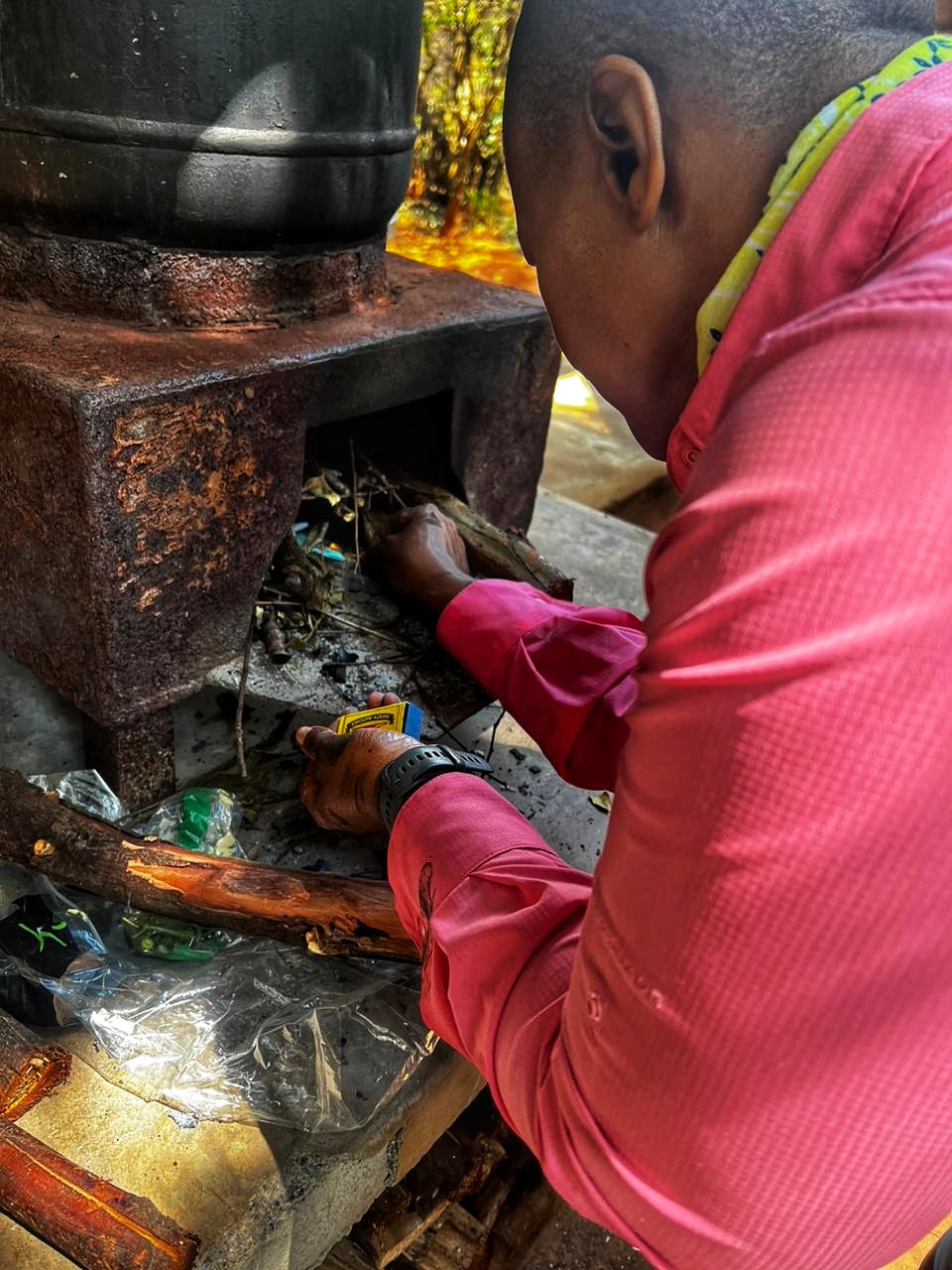It’s so unbelievable that I haven’t been here since August.
I won’t lie; for a while, I felt that familiar pressure creeping in: You’re
failing yourself and your readers. You’re falling behind. You’ve messed up the
rhythm…again!
However, hiking—especially as a beginner—has taught me an important
life lesson: pushing through when your body (or spirit) is tired doesn’t make
you stronger. It just makes the journey harder and unpleasant.
The past few months were unbelievable. It was like everything
just spiralled out of control. I was snowed under. My energy was at its lowest.
I even got a high blood pressure diagnosis (something I never thought possible,
given my lifestyle). Yes, life happened, as it often does!
And just like on a trail, when the pack feels too heavy and the sun too hot, I had to stop - not quit. Just a necessary pause. I had to re-member (slowly) that rest is not a sign of failure.
If you know me, you’ll understand that I’m a one-step-at-a-time
girl. I preach being gentle with oneself and others. And that is exactly what I’m
doing now. I’m being gentle with myself, listening to my body, and moving at a
pace that honours where I am at this moment.
There are no deadlines or prizes to chase
I recall that in my early hiking days, I had to explain that
I traversed dangerous terrain and slept in tents, not for any tangible prize. There
is no prize for being the fastest person on the trail; there are no medals for
early finishers. There is no prize for the best-dressed hiker! The point is to
arrive safely, to soak in the views, to breathe, to enjoy the walk.
I suppose the same applies to this blog.
There’s no invisible judge counting missed blog posts –
unless you are! And there is no medal for burnout. It will be unbecoming of me
to think that I can wear fatigue as a badge of honour! Sometimes the bravest
thing you can do is to slow down and say, I’ll come back when I’m ready. And
that’s exactly what I did!
And now, I am ready. And I hope you, too, in whatever you do, will be gentle with yourself and remember to listen to your body. In one practice that I do, we are taught to ask our body each time: Body, how far are you willing to go today? In that practice, we do it the body’s way. How ‘cool’ do you think it would be if you checked in with your body each time? Just saying!
Tackling the hiking trails this summer?
I know in South Ahh (SA)
we only have two seasons – summer and winter. However, in hiking, we get
to feel the different seasons, depending largely on where our boots lead us. Yes,
you may miss the difference between spring and summer, but the other seasons
have distinct features. Spring and summer may pose similar challenges, with the
most common being the heat. Just a few gentle reminders for this season:
- Start
early. Early mornings are cooler, quieter and kinder on the body.
- Check
the weather. Besides the heat, summer is the rainy season. You do not
want to be caught in a thunderstorm or hailstorm. If you need to take a
rain check, so be it!
- Hydrate,
hydrate and hydrate. Don’t underestimate the amount of water you will
need when it’s hot. Take more than you think you’ll need. Sip often, not
only when you’re thirsty. Your body will thank you.
- Listen
to your body. Dizziness, headaches, or unusual fatigue signal you to
stop, rest or turn back, if possible. There is no shame in that. You don’t
owe anybody an apology. If you cannot turn back, slow down and take as
many rest stops as you need. Call for help if needed.
- Take
breaks. Make sure there is shade. You can just sit down and be still
for a moment, even when you feel well. Not only does this provide the much-needed
rest, but it also gives you a chance to connect with the space you’re in.
- Wear
protection. Think a wide-brimmed hat, sunscreen, breathable clothing,
good hiking shoes and socks.
- Hike
your own hike. Your hike, your pace. Know and respect your limits. As
they say, stay in your lane.
 Sometimes all you need to do is stop and enjoy what nature has to offer.
Sometimes all you need to do is stop and enjoy what nature has to offer.
I’m over making resolutions or unrealistic promises. I believe
in setting intentions, which I keep revisiting. At this moment, I intend to
show up more consistently.
This blog was never about perfection. It has always been about
beginnings. About learning. About holding each other’s hands as we put one foot
in front of the other. And don’t ever doubt this, I enjoy sharing information
with you.
I appreciate you from the bottom of my heart. I appreciate
you for being here. Whether you’ve been waiting quietly or just found your way
to this page. Here’s to more gentle progress and more gentle movement. Here is
to recognising that you too are allowed to move at a pace that honours the season
you are in. Here is to remembering that you can be a beginner for as long as
you need. And here is to choosing progress over pressure.
See you on the trail. One gentle step at a time!






























.jpg)



